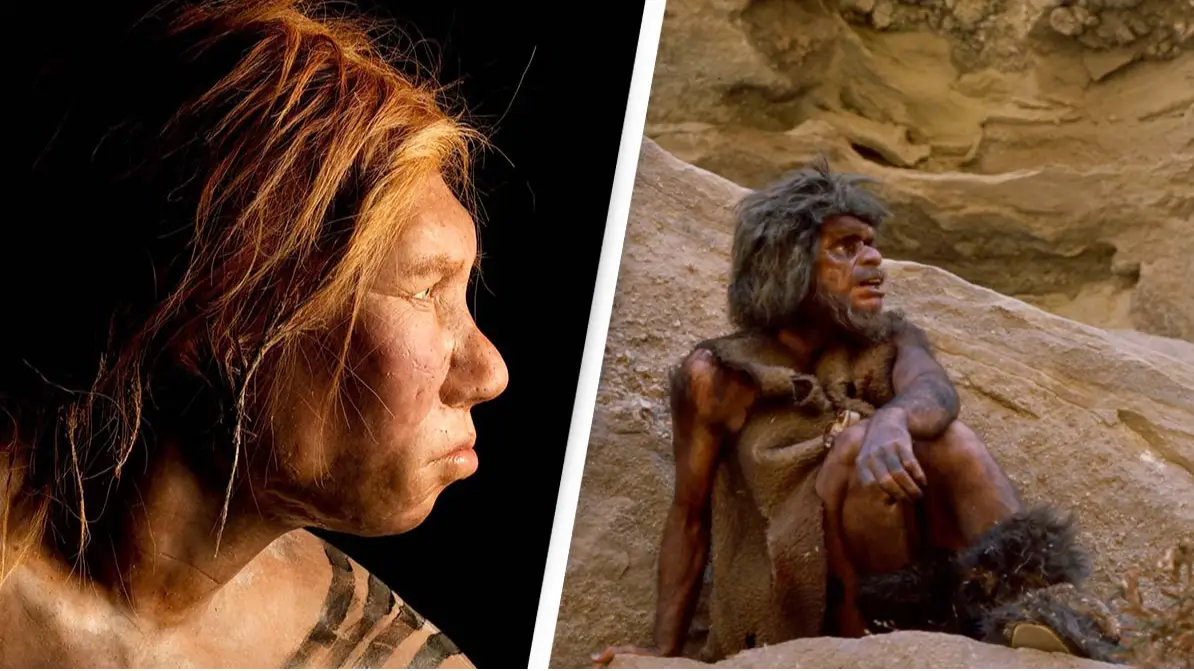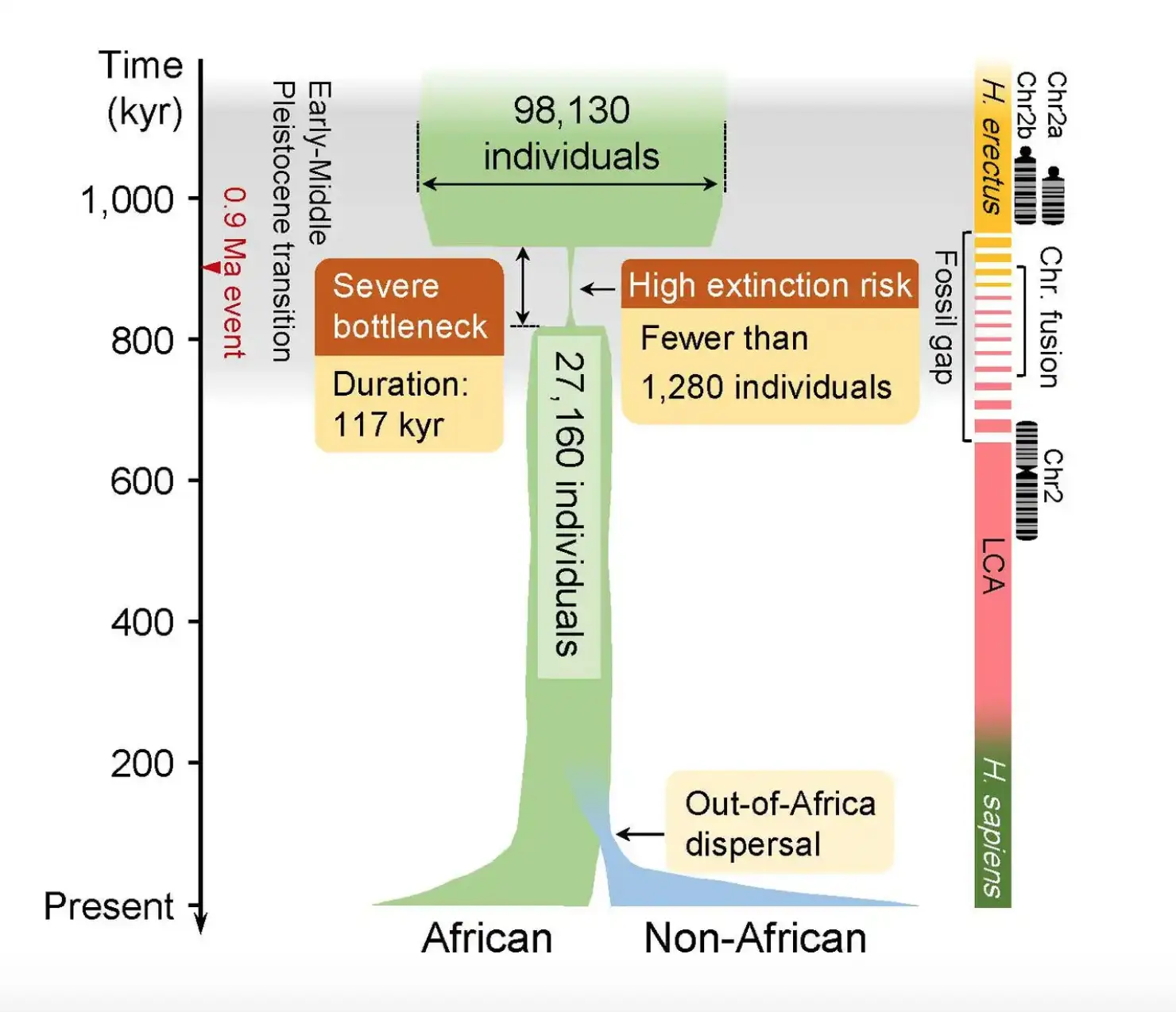
A team of scientists have given an explanation for why there's a large gap in the fossil records of Africa and Eurasia. And it turns out, humans nearly went extinct.
According to research published in Science, around 900,000 years ago the ancestors of modern humans were pushed to the brink of extinction.
Genetic studies by scientists from the US, Italy and China suggest that during the transition between the early and middle Pleistocene, the breeding population of our ancestors in Africa dropped to just 1,280 in what is referred to as an 'ancestral bottleneck'.
It wouldn't expand again for another 117,000 years.
Advert
"About 98.7 percent of human ancestors were lost," says the study's co-lead, Haipeng Li, a population geneticist at the University of Chinese Academy of Sciences in Beijing.
He says that 'the discovery of this bottleneck may explain the chronological gap' in African and Eurasian fossil records from between 950,000 and 650,000 years ago.
Some of the potential reasons behind the population drop are mostly related to climate change.
This period was part of the Early-Middle Pleistocene transition, a time when glacial cycles became longer and more intense. In Africa, this led to long periods of drought and food sources may have dwindled as various animals went extinct.
According to the study, an estimated 65.85 percent of genetic diversity may have been lost due to this bottleneck.
This was a major threat to human beings, as it resulted in a prolonged period of time where minimal numbers of us could successfully breed.

Around 813,000 years ago, the population of pre-humans began to rapidly increase, although how our ancestors managed to survive and what made the population suddenly flourish again is unknown.
Ziqian Hao, a population geneticist at the Shandong First Medical University and Shandong Academy of Medical Sciences in Jinan, says the population crash would likely have had an impact on human genetic diversity. This may have driven the evolution of important features in modern humans, such as brain size.
"It represents a key period of time during the evolution of humans. So there are many important questions to be answered," he says.
Meanwhile, Shanghai Institute of Nutrition and Health theoretical population geneticist and computational biologist Li Haipeng said in a statement:
"These findings are just the start.
"Future goals with this knowledge aim to paint a more complete picture of human evolution during this Early to Middle Pleistocene transition period, which will in turn continue to unravel the mystery that is early human ancestry and evolution."
Topics: News, Science, World News, Environment
